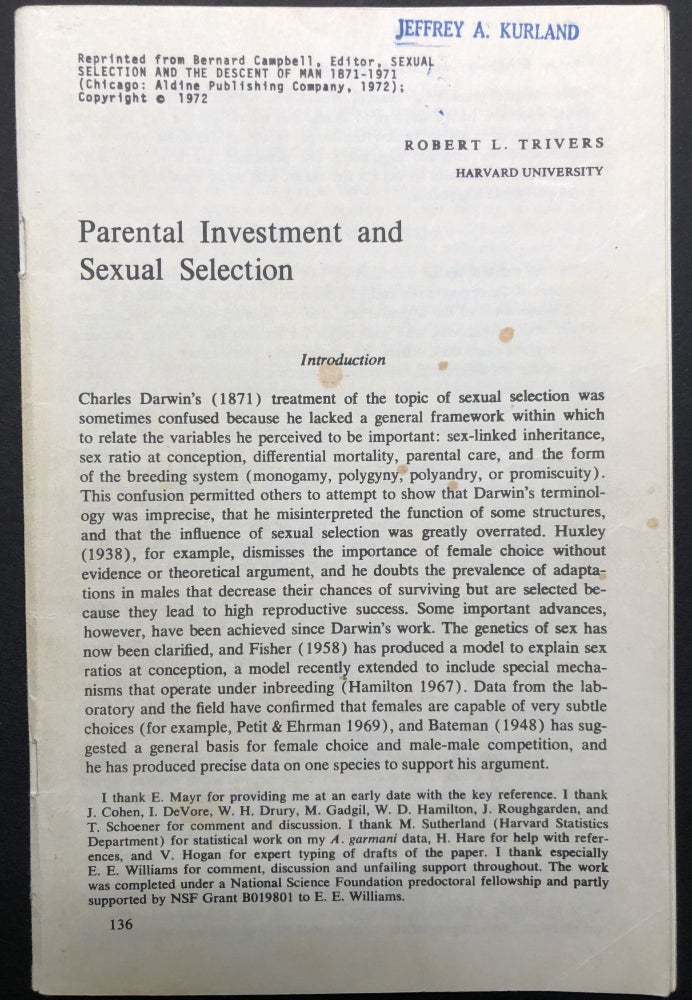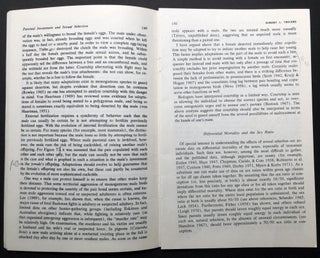Parental Investment and Sexual Selection
Chicago: Aldine Publishing Co., 1972. Paperback. Offprint from "Sexual Selection and the Descent of Man" edited by Campbell. Stapled wraps, pp. 136-179, about very good, a few small brown spots on front cover, name stamp of Jeffrey A. Kurland (1943-2018, biological anthropologist and evolutionary theorist at Penn State), and a few marginal pencil notes by Kurland. An extremely influential paper by Trivers, who coined the term "parental investment theory" in this paper. Parental investment as defined by Robert Trivers is the investment in offspring by the parent that increases the offspring's chances of surviving and hence reproductive success at the expense of the parent's ability to invest in other offspring. A large parental investment largely decreases the parents' chances of investing in other offspring. Parental investment can be split into two main categories: mating investment and rearing investment. Mating investment consist of the sexual act and the sex cells invested. The rearing investment is the time and energy expended to raise the offspring after conception. Women's parental investment in both mating and rearing efforts greatly surpasses that of the male. In terms of sex cells (egg and sperms cells), the female's investment is a lot larger, while males produce thousands of sperm cells which are supplied at a rate of twelve million per hour. Trivers hypothesized that greater biologically obligated investment will predict greater voluntary investment. Mothers invest an impressive amount in their children before they are even born. The time and nutrients required to develop the fetus, and the risks associated with both giving these nutrients and undergoing childbirth, are a sizable investment. To ensure that this investment is not for nothing, mothers are likely to invest in their children after they are born, to be sure that they survive and are successful. Relative to most other species, human mothers give more resources to their offspring at a higher risk to their own health, even before the child is born. This is associated with the evolution of a slower life history, in which fewer, larger offspring are born after longer intervals, requiring increased parental investment. (Some information from Wikipedia). Very Good. Item #H23924
Price: $100.00


